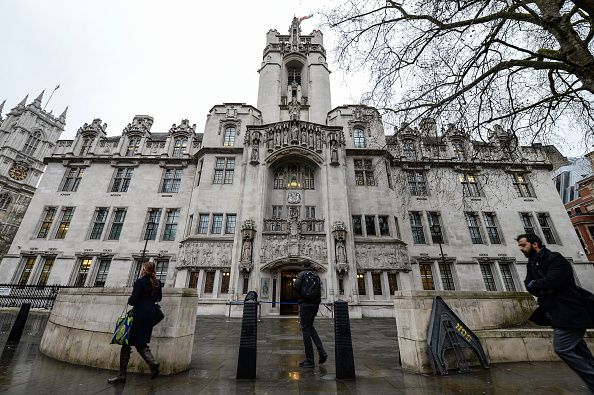Europe’s £10bn cum-ex tax scandal set to rumble Square Mile after key ruling

Banks and other investors in the Square Mile are poised to be hit with more claims over a major European tax fraud scheme, according to lawyers, after a key ruling last week.
Sanjay Shah, founder of hedge fund Solo Capital Partners, lost a Supreme Court fight to prevent a £1.4bn trial over so-called cum-ex tax trades last Wednesday.
The top court unanimously allowed the Danish tax agency Skatteforvaltningen to pursue its case against Shah in London, opening the door for other European regulators to bring claims.
Shah’s lawyers argued a London court could not rule on foreign tax law under Rule 3(1), but Judge David Lloyd Jones noted that “the applications for refunds were all based on a lie that the applicants had paid tax in the first place which, on the respondent’s pleaded case, they had not”.
Rob Fell, a partner at Travers Smith told City A.M. that the decision “is a significant one given the size and high-profile nature of the litigation”.
“The decision is the first to deal with the application of Rule 3(1) to the recovery by a foreign sovereign tax authority of a tax refund paid erroneously and will have great implications for numerous cum-ex cases currently being heard across Europe,” he added.
Nicola McKinney, a partner at Quillon Law, said the judgement could “be easily applied by tax authorities – or indeed any state-related entity which has its own legal personality — in other jurisdictions”.
She added that the scale of Shah’s trial “if extrapolated to actions by other tax authorities, could mean a significant volume of the business of the Commercial Court being dedicated to this type of action over the coming years”.
Robert Newcombe, a barrister at Church Court Chambers, said: “Where a foreign government or agency alleges it has been defrauded in similar circumstances, the law is now clear that a civil claim may proceed in the UK against the alleged fraudsters.”
Cum-ex trading strategies involved exploiting jurisdictions which offered favourable dividend tax treatment, such as Germany, Denmark and Belgium, to enable several parties to claim rebates on a tax that was only paid once.
Germany, which abolished the practice in 2012, has seen more than a dozen convictions related to the scandal, with taxpayers estimated to be on the hook for nearly £10bn.
Investigators have named some 2,000 suspects in total and raided several international banks.
Although no loophole exists in UK law for cum-ex trades, banks and other investors in the Square Mile have still been scrutinised.
Investigators in Cologne were overseeing 120 probes with 1,700 suspects as of July, with most of these individuals based in London.
More than 120 Barclays employees were reportedly named as suspects, with charges set to come early next year. Barclays declined to comment.
City A.M. understands that some suspects have been added to German prosecutors’ lists with minor roles, such as being copied into emails
The Financial Conduct Authority is investigating how individuals in London may have facilitated European cum-ex trades.
The City watchdog has brought five cases to date and imposed fines of more than £20m on firms which earned over £7m in fees from illegitimate tax reclaims, with the majority coming from ED&F Man Capital Markets in June.
The FCA declined to comment on the potential for future cases.